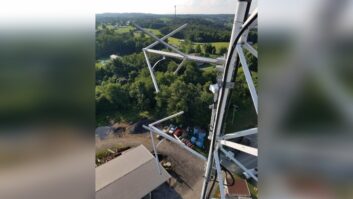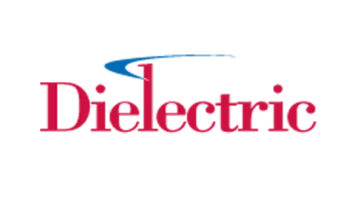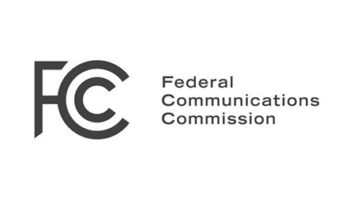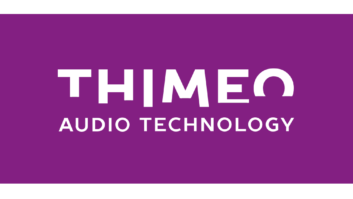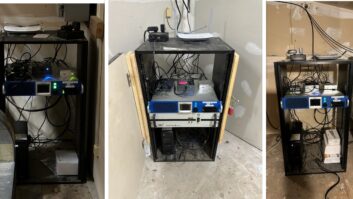MONROE TOWNSHIP, N.J. — The New Jersey Broadcaster’s Association weighed in on the Media Bureau’s NPRM amending Part 74 of the commission’s rules on FM translator interference (MB 18-119).
The follow is an excerpt from an email in which NJBA President/CEO Paul Rotella summarized the association’s position on MB Docket No: 18-119:
The NJBA feels that the NPRM will significantly adversely affect our full-service broadcasting membership stations by no longer providing contour protections that were formerly provided to the full-service stations.
Essentially, the most significant area of concern for the NJBA, is the contour limiting aspect of the proposed NPRM (i.e. limiting such listener complaints to the complaining stations’ 54 dBu). By using the 54 dBu, it seems the FCC is suggesting that the “primary listening” patterns worth protecting only occur within this 54 dBu contour designation.
Unfortunately, quite to the contrary, listening patterns are largely outside the 54 dBu. Therefore, setting this contour level would significantly impair stations and their listening patterns as noted in the tables below. We analyzed stations in the New Jersey Market (including the Monmouth-Ocean NJ Market – Nielsen Market #53) and how “contour” listening occurred for those stations within those markets. We found that the predominance of listening (generally over 50% of the listeners) occurs OUTSIDE the FCC proposed 54 dBu and thus the NPRM would detrimentally affect full service radio stations and the broadcasters in NJ, which we strongly oppose.
If the NPRM is enacted as is, that will potentially place over 50% of full service listening audiences as possibly being eroded by Translator applications. Namely, over 50% of such listening audience will no longer be able to “object” to interference from Translators! That is simply unfairly turning the table on full-service broadcasters and improperly benefitting Translators by essentially allowing translators to disenfranchise over 50% of the listening audiences of full service Broadcasters.
With that in mind, the NJBA proposes that the NPRM be amended to allow full-service broadcasters with protection of their listening by allowing listener objections out to the 45 dBu.
Insofar as New Jersey is concerned, we offer some added thoughts which makes the NPRM even that much more troublesome. As you know, the “Consolidation Act” actually did away with the contour designations in which radio stations operate and set forth the principle that stations operate in “markets”. The importance of that cannot be understated.
The NPRM sets forth arbitrary “contour designations” (namely the 54 dBu) and ignores the “market” concept at the heart of the Consolidation Act. It is important to acknowledge that radio stations do not operate in protected contours as the FCC seems to suggest as evidenced by the NPRM. Rather, radio stations operate and serve “markets” as defined by BIA and Nielsen.
Radio station diversity was based on the number of stations in a “market”, purposely dispensing with the concept of using overlapping “contours”. The Act assumed that all stations in a market could be heard throughout the market. The NJBA is merely trying to preserve the spirit and intent of that legislation. Market classification/determination was also written into the Commission’s rules on ownership (See 47 CFR 73.3555). And while the larger Class “B” stations in New York and Philadelphia determine their markets with their signals, the broadcasters in New Jersey live in a world where the market is determined for us. To produce the revenue we need to exist, and to properly serve the audiences we inform, entertain and protect, we need to be heard throughout those markets.
As you can deduce, the NPRM would work against that by essentially fragmenting “markets” and make station listening “unlistenable” due to “pockets” of interference being caused by the Translators under the NPRM which could affect 50% of the listening patterns that occur outside the NPRM’s 54 dBu contour protection area.
On that note, interference is interference. Interference from any source is always harmful to a station’s viability, especially small market Class A’s. New Jersey was allocated mostly “Class A’s” while New York City and Philadelphia receive all “Class B’s”, which New Jersey “A’s” have to compete with. Most New York City and Philadelphia Class “B” stations enjoy substantially higher power, better interference protection and greater coverage over New Jersey stations. Adding interference from any source, including NPRM Translators (and pending review of LPFM’s), will catastrophically leave many areas within the state with no local in-market FM full service broadcasting.
We think that it is important for the Commission to also acknowledge what is being proposed under the NPRM. Namely, the NPRM will have the effect of be selectively “dicing” up the State of New Jersey (and potentially other markets) to benefit lower reach and less powerful Translator stations. The introduction of possibly a slew of new Translators bifurcating market after market will only serve to drive many stations out of business thereby hurting the community at large and working directly against the Act and its public purpose. If a full-service broadcaster has difficulty in the current landscape, how is introducing more stations making sense? The FCC imposes many requirements of licensure which instill on broadcasters the need to fulfill localism, conscientiousness programming, local news, local information, increased employment, diversity, and many other public service obligations.
The NPRM would only negatively affect listening patterns and thereby threaten the viability of full-service broadcasters resulting in the erosion of the FCC’s requirements of licensure. In order for a station to meet these duties of License ownership, a station must remain commercially viable through its ability to generate revenue.
The NPRM regulations would seriously jeopardize most, if not all, of New Jersey’s full power radio stations thereby depriving the citizens of the Garden State of meaningful, valuable, and potentially life-saving radio service, leaving the state’s already disadvantaged stations without an ability to remain profitable and serving the public needs, including the EAS needs, which clearly following Hurricane Sandy in 2012, are essential. The proposed NPRM will undermine exactly what the FCC and Congress is looking for in its pronouncements.
The New Jersey Broadcaster Association respectfully submits that the NPRM will work to substantially harm New Jersey’s lopsidedly allocated full power FM stations and that added interference, from any source, will reduce the already meager coverage of many New Jersey stations, and in particular, Class A stations.
Broadcasting is a public trust and a public service that transcends politics. To be sure, no other business is so public spirited. In that regard, the NJBA will continue to work in a cooperative and constructive manner to address the vital issues impacting our state in the demanding times we face together.





